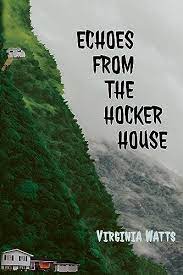By Robert Fleming

Two OSP Founding Members, Morgan Golladay and yours truly Robert Fleming, won awards at the Delaware Press Association professional communications contest 5/1/2024 in Newark, DE. Escorting Morgan through the entrance, she answered my dress question: “my Old Scratch Press T-shirt is not fancy enough for a banquet, best black only.” I wore a tight shirt to accentuate my pecs, in-case there was anyone looking for a date. At a banquet, you must send the right signals.
Here is the low-down on who won which awards:
Morgan Galladay won first and second place in short stories: single story for “Under the Rhodendrons” published in Halloween Party ’23:
Halloween Party ’23: Keeten, Jeffrey, Heron, Robert Lewis, Goodridge, James, Golladay, Morgan, DeCicco, Kim, Dickerson, Marc, Howd, Eric Machan, Machan, Katharyn Howd, Paige, Michael, Cantu, Juan: 9781957224503: Amazon.com: Books
“Second Christmas” published in Solstice, volume 3:
Solstice: A Winter Anthology (The Solstice Winter Anthology Series): Pearce, Dianne, Doyle, Anthony, Golladay, Morgan, Watts, Virginia, Johnson, John, Fitzgerald, Christian, Aakaash, Buffy, Fulcher, R. David, Crandell, William F., Pearce, Dianne: 9781957224039: Amazon.com: Books
and honorable mention in creative verse: single poem for “March Wind” published in Instant Noodles: MARCH WIND – Morgan Golladay – INSTANT NOODLES (instantnoodleslitmag.com)
What’s next for Morgan: At the banquet Robert spilled ranch dressing on Morgan’s black skirt. Morgan screamed she will immediately send her suit to the dry cleaner. Robert agreed to pay for his stain. While Morgan is waiting to pick up her dry cleaning, she is promoting her upcoming book Song of North Mountain, published by Old Scratch Press:
DPP CATALOG – Devil’s Party Press, LLC (devilspartypress.com)

Robert Fleming won third place in creative verse: single poem for “Cheese Sonnet #263” published in Four Feathers Press: rhythms of Southern California
Honorable mention in Graphics and Design for “Timothy Gager is with Ellis Elliott at Boston Harbor with the Dire Literary Series.”
DPP CATALOG – Devil’s Party Press, LLC (devilspartypress.com
Robert Fleming won third place in creative verse: single poem for “Cheese Sonnet #263” published in Four Feathers Press: rhythms of Southern California
honorable mention in Graphics and Design for “Timothy Gager is with Ellis Elliott at Boston Harbor with the Dire Literary Series.”
What’s next for Robert?
At my club house gym yesterday, a neighbor approached me to purchase my book White Noir:

After showering, I delivered my book to my neighbor who invited me inside and paid me, after I signed my book. That was the end of the neighborly encounter because the neighbor’s husband, watching tv on the couch, sneered at me. I promptly departed my neighbor’s house, as the husband rose and walked toward his pistol.
Unwounded, I created three graphic images for Four Feather’s Press upcoming publication: Landmarks of Southern California. Learn more about the author here: https://www.youtube.com/watch?v=FOAb33t1NFc


























